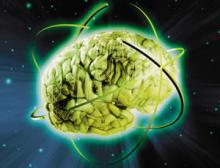 The question, “Could the Net become self-aware?” is one that I would normally dismiss quite quickly. If your source for good science is simply ripping off the plot from Terminator, then god help us if you ever moved beyond that and watched the Matrix.
The question, “Could the Net become self-aware?” is one that I would normally dismiss quite quickly. If your source for good science is simply ripping off the plot from Terminator, then god help us if you ever moved beyond that and watched the Matrix.
The question has indeed come up (well of course it has, thats why I’m blogging about it), but its not the question, but rather the source for this question that catches my eye. New Scientist has an article that lists Eight Things you did not know about the Internet, and for Item 2, they toss the question out and then answer like this …
Yes, if we play our cards right – or wrong, depending on your perspective.
In engineering terms, it is easy to see qualitative similarities between the human brain and the internet’s complex network of nodes, as they both hold, process, recall and transmit information. “The internet behaves a fair bit like a mind,” says Ben Goertzel, chair of the Artificial General Intelligence Research Institute, an organisation inevitably based in cyberspace. “It might already have a degree of consciousness”.
Not that it will necessarily have the same kind of consciousness as humans: it is unlikely to be wondering who it is, for instance. To Francis Heylighen, who studies consciousness and artificial intelligence at the Free University of Brussels (VUB) in Belgium, consciousness is merely a system of mechanisms for making information processing more …
If curious, the link to it in New Scientist is here, but be aware, they are rather keen for you to sign up and subscribe these days, they give you a teaser only.
OK, so its an interesting question that comes with a rather debatable answer. However, before we can truly answer it, I suggest that we first need to truly understand what consciousness actually is, and until we do, a far better answer is the more honest, “I don’t know … yet, but I’ll think about it”.
Their answer is not science, its science fiction. Yes there are folks thinking about this and doing research, and yes it can be argued that the interconnected Internet might perhaps be similar to the neurons in your brain, but the answer they give leaps beyond the evidence into the realm of speculation, and perhaps such a leap has more to do with attracting subscribers than anything else.
Lesson for the day, seeing it in a well-respected journal, does not make it right, so you should always push back, challenge, ask questions, never just accept, in essence … be a critical thinker.